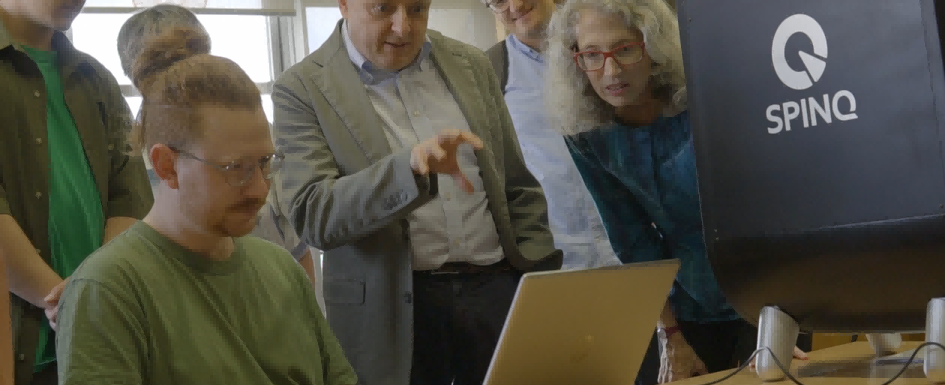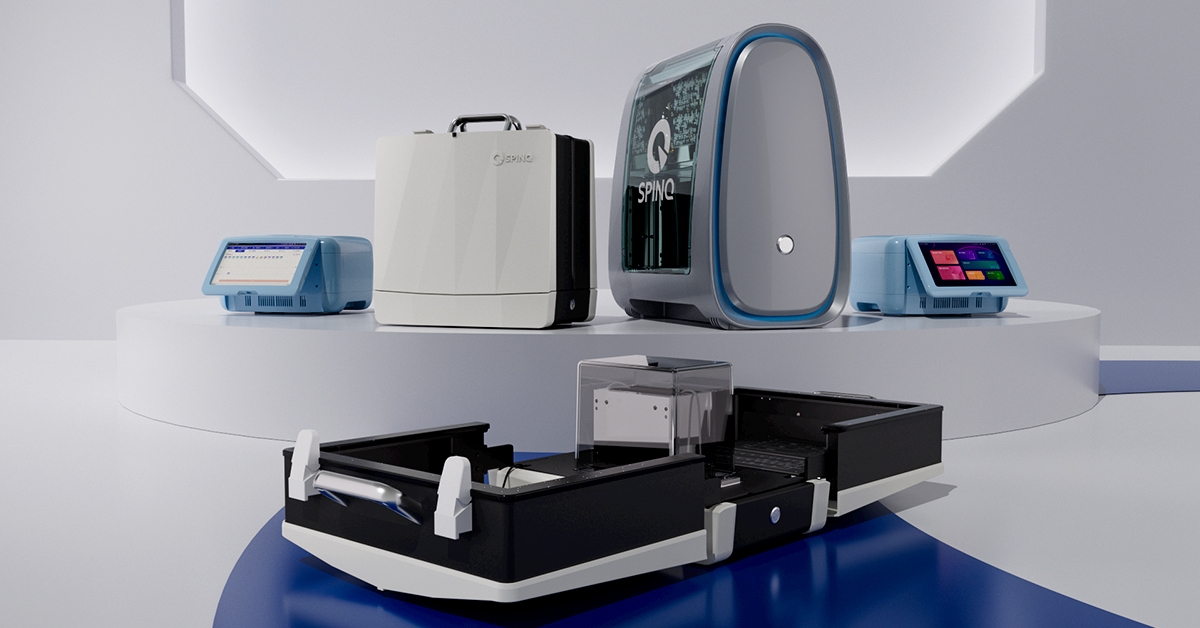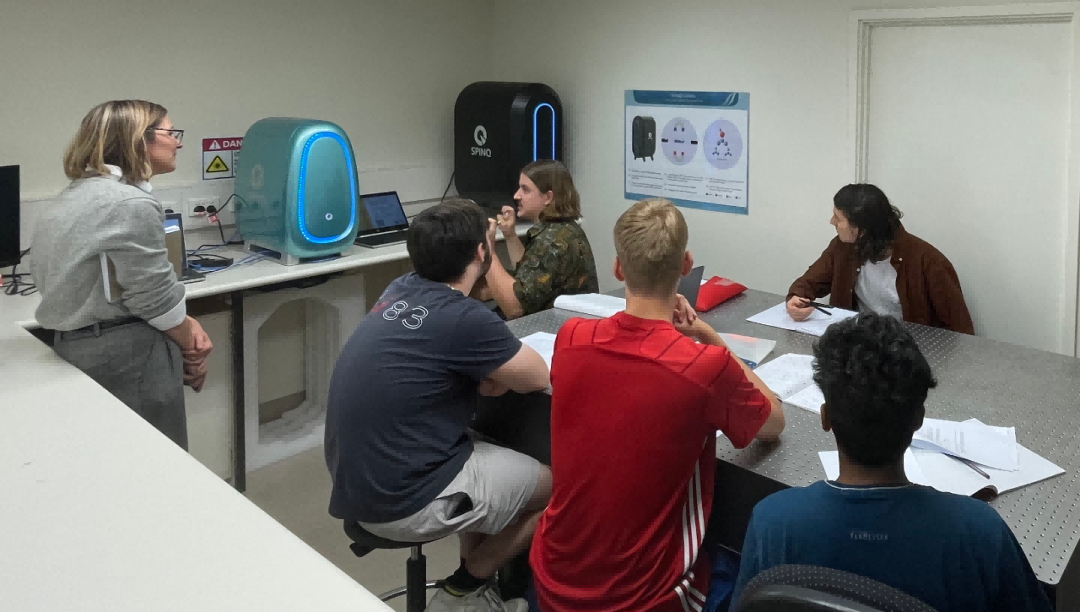UWA and SpinQ: Real Quantum Teaching with Desktop Quantum Computers
2023.05.24 · Press Release desktop quantum computersUniversity of Western Australiaquantum education
Quantum computing is revolutionizing education, and the University of Western Australia (UWA) is at the forefront, leveraging SpinQ desktop quantum computers to transform its quantum education programs.
UWA's Quest for Ideal Quantum Teaching Aids
Founded in 1911, the University of Western Australia (UWA) is one of Australia's most historical research universities, renowned for its world - class research and education. UWA holds a leading position in quantum computing, with its quantum physics scoring a perfect 5/5 in the latest Australian Research Excellence Assessment (ERA) rankings. The Engineering for Quantum Systems (EQUS) department is a key part of the ARC Centre of Excellence.
Quantum science is a core research area and foundational program in UWA's Physics Department. Most students, whether in Physics or Frontier Physics, take the Quantum Information and Computing course. However, UWA educators recognized a gap in quantum computing education. Beyond theoretical knowledge, practical experimental experience is essential. The lack of ideal quantum teaching aids prevented students from interacting with quantum phenomena like superposition and interference, which are hard to replicate on classical or virtual quantum platforms. Also, quantum computing curricula often need experimental components, such as observing Rabi oscillations, preparing Bell states, and simulating the BCS model. Interactive demonstrations on a real quantum computer are crucial for students to understand quantum computing principles.
SpinQ Desktop Quantum Computers: Solving UWA's Quantum Education Woes
To boost quantum education and its quality, UWA's Physics Department and the Pawsey Supercomputing Centre established the UWA & Pawsey Quantum Computing Centre (UP - QCC). Using SpinQ's desktop NMR quantum computers, the Gemini and Triangulum, the center offers students hands - on equipment and interactive quantum control design experiences. This improves their skills and connects them with Pawsey's Quantum Supercomputing Innovation Centre.

SpinQ Gemini and Triangulum Features
-
Compact Design: As desktop NMR quantum computers, SpinQ Gemini and SpinQ Triangulum are compact. They use nuclear magnetic resonance principles, with the spin properties of the nucleus as qubits, manipulated by radio - frequency pulses. They also support open - physics hardware - level pulse sequence editing for user programming.
-
Miniaturization and Portability: Unlike typical large - scale quantum computers, SpinQ Gemini and SpinQ Triangulum use permanent magnets for static fields, achieving miniaturization. They are lightweight and portable.

-
Stability and Ease of Use: For UWA, these computers operate stably at room temperature, simplifying usage for educators and researchers. In the classroom, UWA instructors can demonstrate key quantum computing processes, deepening students' understanding through hands - on practice.
-
Low - maintenance and Cost - effective: Their low - maintenance and cost - effective nature reduces the need for specialized staff to maintain the equipment, saving UWA's budget.
-
Rich Algorithmic Cases: As teaching tools, the Gemini and Triangulum come with essential quantum computing algorithms and over 10 typical quantum algorithm teaching cases. This enriches students' learning experiences, allowing them to conduct industry - standard quantum algorithm experiments.
-
Built - in Experiments: SpinQ Gemini and SpinQ Triangulum have built - in quantum computing experiments, such as Rabi oscillation observation, Bell state preparation, BCS model simulation, and hydrogen atom ground state energy solution. These cases, based on real - life research and applications, can better stimulate students' interest and creativity.

For UWA students, since the SpinQ Gemini and SpinQ Triangulum were put into use, they have not only deepened their understanding of quantum computing principles through hands - on practice but also improved their quantum computing skills, like quantum programming. More importantly, these computers provide a real interactive learning platform, helping students master quantum computing knowledge more efficiently and develop innovative thinking and problem - solving abilities.
For UWA educators, SpinQ's desktop quantum computers offer intuitive and comprehensive teaching resources, sparking students' interest in quantum computing and enhancing the quality of instruction. Professor Jingbo Wang, Head of the Quantum Computing Laboratory at UWA, said, "Quantum computers can solve problems traditional computers can't. To fully utilize these powerful devices, the next - generation researchers need new knowledge and skills. SpinQ, by providing quantum computers for teaching, gives our students a great opportunity to develop their quantum thinking and be at the forefront of the quantum computing field. Quantum computers offer a real - life interactive platform for students to learn theory and gain experimental experience."
SpinQ is dedicated to innovating quantum education. By providing top - notch desktop quantum computers, it empowers students at UWA and beyond to enhance their quantum computing skills. If you're interested in revolutionizing quantum education like UWA, Contact Us today.
Featured Content






